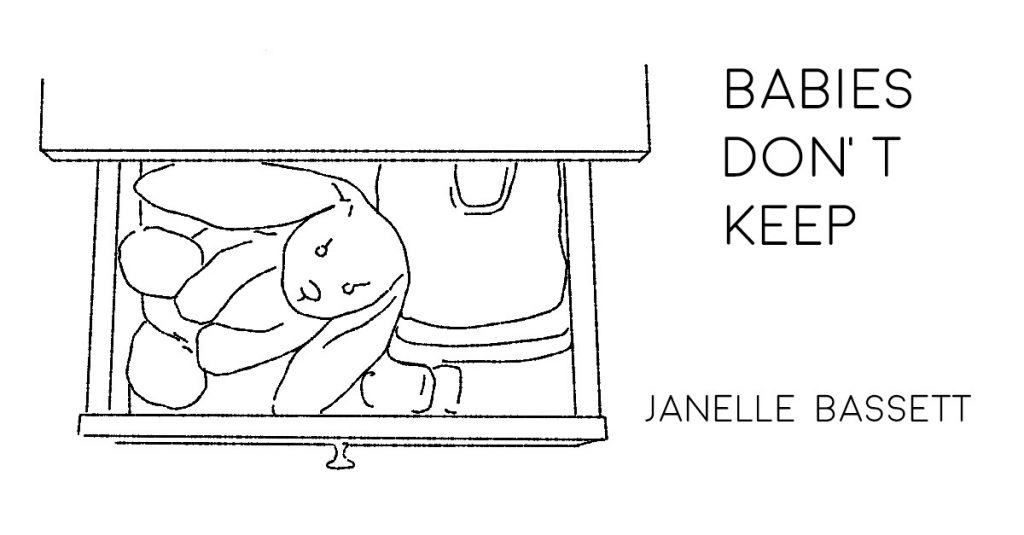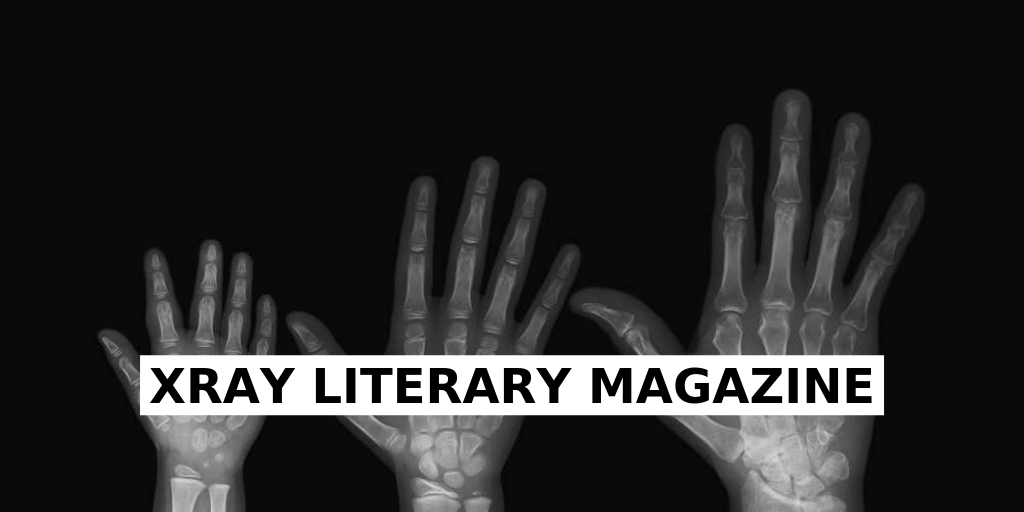
BABIES DON’T KEEP by Janelle Bassett
I packed my blue kiddie-sized suitcase that said “Off to Grandma’s House.” In went the socks that I liked to roll down into ankle worms. In went the hairbrush with my spelling bee name tag stuck on the handle to claim it as mine—just like the dark greasy hair wound through it. Usually the suitcase referred to my dark-haired Grandma, because that’s where I took it. This time I was packing for a trip to my red-haired Grandma’s, but the suitcase was still right about where I was headed. I put in a wax air freshener shaped like a teddy…

